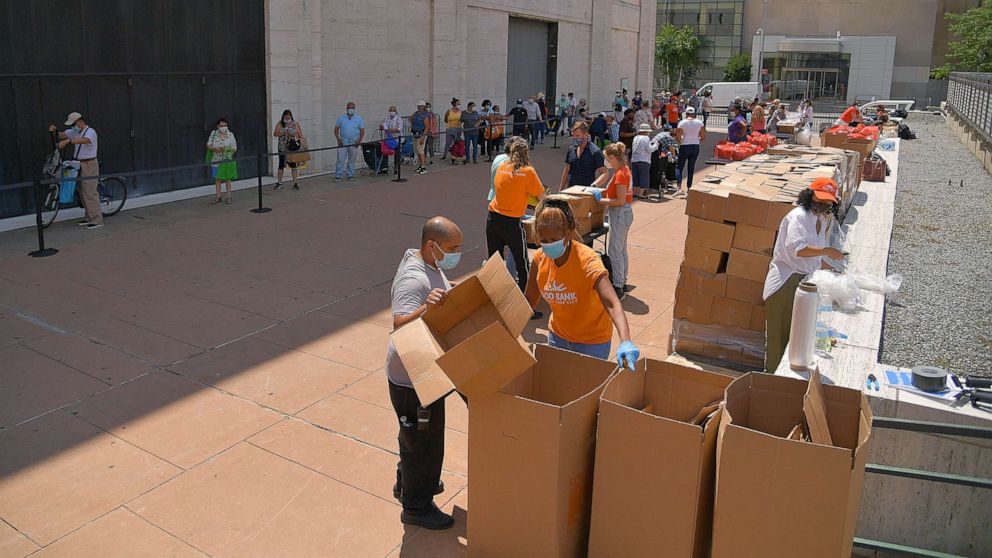


The U.S. economy, as measured by real GDP, contracted at a record-shattering 32.9% pace last quarter, according to government data released Thursday.
The figure reflects how the coronavirus pandemic has clobbered the U.S. economy with unprecedented speed and furor as it shut down large swaths of businesses over the past few months. For comparison, the previous worst quarterly GDP plunge was a decline of 10% in 1958.
"We've never done this before. We've never shut down the economy before for crises," Laura Veldkamp, a professor of finance and economics at Columbia Business School told ABC News. "They've always unfolded quite a bit more gradually than this. Even the financial crisis, it felt very sudden, but we didn't suddenly tell everybody, 'Hey, it's, it's not safe to do in person transactions.'"
The 32.9% figure represents the annualized rate of contraction, which differs from the 9.5% actual contraction that occurred between April and June.
MORE: 'They're going to fall off a cliff': August set to bring new financial anguish as coronavirus aid lifelines expire"It was an epically bad second quarter and we got our first look at just how bad -- down 32.9 percent on an annualized basis, the worst 3-month U.S. economic contraction ever recorded," Greg McBride, the chief financial analyst at Bankrate, said in a commentary Thursday morning. "The economy continues to set records for all the wrong reasons."
Separately, the Labor Department also said Thursday that another 1.4 million workers filed jobless claims last week, another indicator of the ongoing anguish that the pandemic has caused to the economy as a whole.
The fresh unemployment data marks the 19th straight week that weekly jobless claims have been over 1 million. While the new unemployment filings have trickled down some since peaking at 6.9 million in late March, they remain at historically high levels. Prior to the COVID-19 crisis, the record for weekly unemployment filings was 695,000 in 1982.
The data also reflects the pain for many workers as some businesses are being forced to re-close or roll back on reopening plans as coronavirus cases surge across the U.S. After nearly three months of decline, the new unemployment data figures began to rise slightly last week.
"The virus spread and economic rollbacks in the weeks since do not bode well for the labor market in the weeks and months ahead," McBride said.
Moreover, the latest release from the DOL shows that some 17 million Americans are still receiving unemployment benefits, and are likely bracing for the looming expiration of the extra $600 a week in pandemic jobless aid.
McBride noted that the expiring federal unemployment benefits, currently without a replacement, "threatens a chunk of consumer spending power that has sustained households and made its way back into the economy.”
ABC News' Arielle Mitropolous contributed to this report.